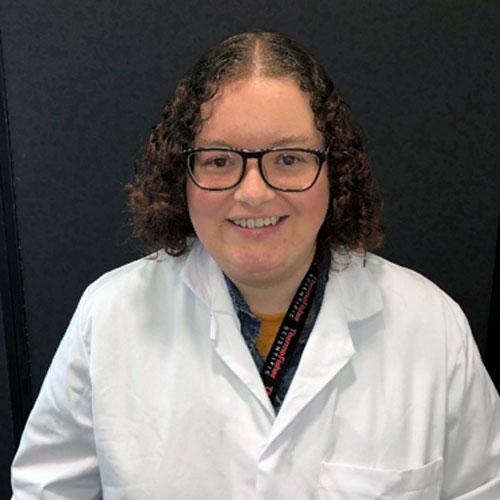Denise graduated with her MChem Forensic & Analytical Chemistry in 2011.
What was your first job after graduation?
My first Laboratory position after university was as a Development Chemist at Fujifilm Imaging Colorants in Grangemouth. The role involved performing a range of analytical tests on various pigment and dye samples. I was also involved in developing new analysis methods for some of the upcoming products.
Where has that led you/what do you do now?
I now have a broad range of analytical chemistry experience, as I’ve worked in a variety of laboratory roles within the pharmaceutical and Scotch Whisky Industries.
I now work at Thermo Fisher Scientific, an international life science company, as a quality control (QC) Scientist in the analytical lab. Our site in Renfrewshire produces cell culture media which is a vital resource for researching diseases, new medicines and other applications such as making vaccines.
As well as performing the required testing which allows our products to be released to customers, my role also involves method development and validation, troubleshooting and supporting other members of the team with my expertise in chromatographic and spectroscopic analysis.
How did your course and time in the Department of Pure and Applied Chemistry prepare you for the world of work?
My Industrial Placement year at GSK was a really important part in preparing me for the world of work. Having a full year’s experience of doing relevant and meaningful work really helps to set you apart from other graduates when applying for a job. It also helps you to understand and appreciate some of the differences between research and industrial labs, which helps you to think about what your career plans might be when you graduate. The department’s focus on transferrable skills was also really useful. For example, ensuring that their graduates are good communicators, and have a strong awareness of things like COSHH and regulatory standards that they will be expected to perform to in an industrial setting.
What did you enjoy most about your course and time at University?
I really enjoyed the strong practical focus of the course. Spending time in all of the different labs really helps you to understand the real-life applications of the things you are learning every day. The teaching staff were brilliant as well. Having so many leaders in their respective fields to share their expertise and interesting anecdotes made the learning experience so much more valuable.
Why did you choose to study with us?
I did consider a number of different options when I was applying to University, but ultimately, I chose this Department due to its reputation and the opportunity to undertake an industrial placement, which I thought would be incredibly valuable for my career prospects. I was most interested in the subject matter of the F&A course, but no matter which degree stream you choose, you will end up with a really strong grounding in all aspects of chemistry.
Do you have any words of wisdom for our future Chemistry students and graduates?
When working in a lab, always read the instructions from start to finish before you start the experiment. If you miss something halfway through, or do the tasks in the wrong order, you might have to start the whole thing again!
Embarking on a career in chemistry is a life-long learning journey which will continue after you graduate.
It requires critical thinking skills, patience and an acceptance that you won’t always get it right the first time. Sometimes the simplest of questions have a very complex solution, and the most complex problems can have really simple solutions! Don’t be disheartened with the things that you struggle with. There are a lot of different disciplines within the chemical sciences and we can’t all excel at every single one.
